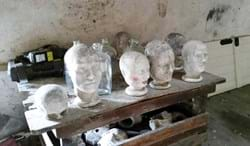GM: You all do amazing work.
You add value to your trade and your clients. You help the local and national economy. You tell stories about objects from our history, something of great importance to our country.
But as a trade, you fail to tell this positive story and are being dragged onto the wrong side of a debate that some might believe connects you to the modern ivory trade, or trade in other CITES-related materials.
Perception is often different from reality. And let me remind you that you do not own your reputation. Everyone else does. Your reputation is what exists in public about you and your industry. In my own assessment of your collective reputation, the public profile of your world, mostly seen on TV and in newspapers, is positive, expert, respected.
Explore social media and the data is interesting. Mentions of ‘ivory trade’ and ‘antiques’ rose from a handful in 2015 to over 50 in 2016. That may seem bad, but it isn’t a huge problem – yet.
The phrase ‘ivory antiques’ gets a lot of play on Twitter. But very rarely is it used with emotive hashtags, such as #Elephant.
Yet the fact is, ivory is not going away as an issue. More celebrities are rightly going to back the antipoaching campaigns. The Chinese ban on trading ivory gained widespread coverage. If you don’t do anything, it makes it harder to argue the relevance for historical items that may contain ivory.
Here’s what you can do:
1. State your stance on endangered species and abhorrence of modern poaching wherever possible but particularly on your website.
2. Back an anti-poaching campaign – one that works for you and then talk about that support on your website.
3. Go early and deliver what you think the government consultation will recommend. This shows you are willing to move.
4. Find more advocates from outside your sector. You have one person making the ivory case publically for you: Victoria Borwick MP. She has done a good job but needs more support – on social media, in letters to MPs and completing the consultation questionnaire.
5. Talk to the young historians forever on the air waves these days. They value the role antiques play in telling historical stories. Work with them as advocates to really make your messages stick.
Just imagine what will happen if there is a total ban and you haven’t been proactive. Where will that leave the impression of your trade?
To sum up, don’t sit back and allow people to change the perception of your sector. Take action, get on the front foot and make the case.









